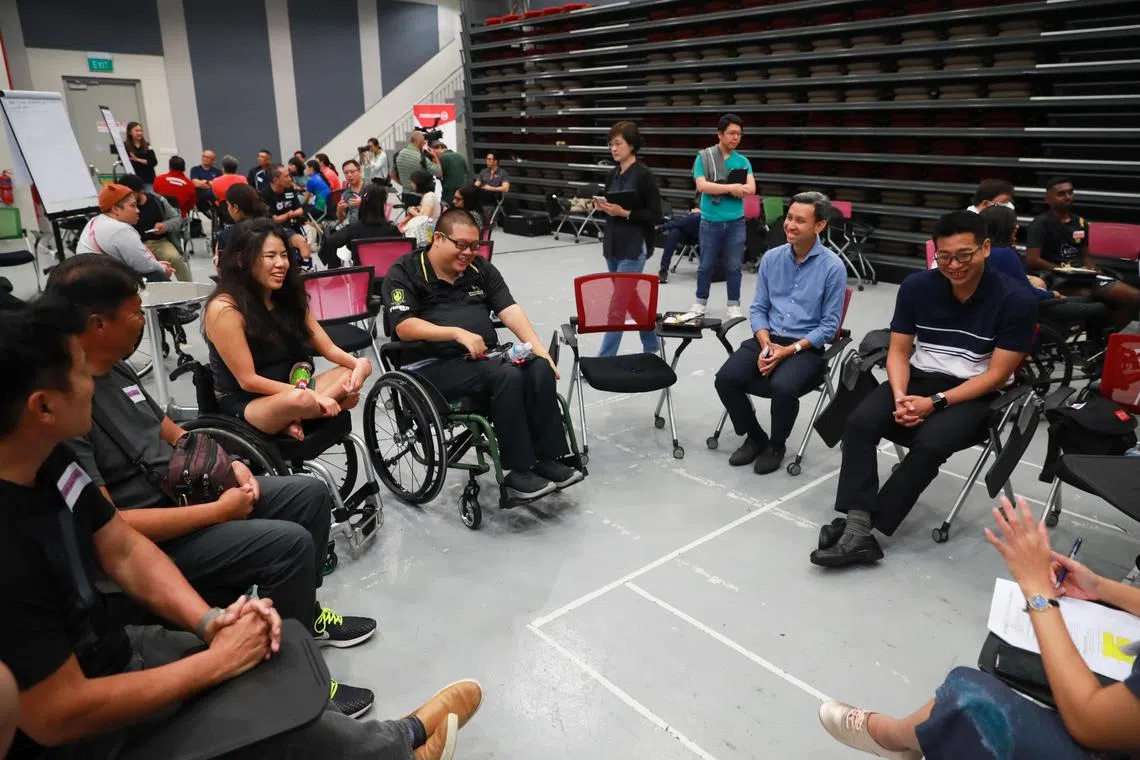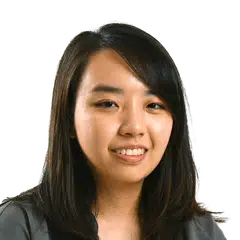Progress made but more to be done for disability sports in Singapore
Sign up now: Get the biggest sports news in your inbox

The Ministry of Culture, Community and Youth held a Forward SG focus group discussion on June 1 as part of its efforts to review the Disability Sports Master Plan.
ST PHOTO: RYAN CHIONG
SINGAPORE – The disability sports movement in Singapore is going in the right direction, but some members of the fraternity believe that even more can be done to make sport more accessible to persons with disabilities (PWDs).
On Thursday, the Forward SG focus group discussion was held at the Sport Singapore Auditorium as part of the Ministry of Culture, Community and Youth’s efforts to review the Disability Sports Master Plan.
At the session, there was a recap of the plan that started in 2016 to build awareness and increase participation opportunities in disability sports, before feedback was gathered from about 50 fraternity members.
Among the initiatives that have been implemented are the setting up of five Centres of Expertise for disability sports – sports centres which offer tailor-made programmes for PWDs – and eight inclusive gyms.
Wheelchair rugby player Edgar Cheong believes the plan has been helpful, especially with more gyms tailored for PWDs.
The 29-year-old, who picked up wheelchair rugby in 2017, hopes that more will be done to engage PWDs in team sports.
He said: “Team sports actually build a community much better than individual sports, so my suggestion would be to have a greater focus on team sports in the future or supporting athletes in team sports because that way the outreach will be to many more people and the results will be longer lasting.”
Housewife Veron Low, whose 16-year-old son Chang Yong Ding has autism, has been a parent volunteer leader of the Play-Ability programme, a recreational sports initiative for the disabled, since 2018.
While she was encouraged by programmes like Play-Ability, the 49-year-old hopes that these can eventually be more inclusive to include both PWDs and able-bodied participants.
In order to make it a reality, she said: “Coaches have to be trained to know about special needs and (programmes need to be) tailored to be slower paced.
“The participants of other children must be willing to accept that the person who’s playing with them is a special needs kid and parents need to be accepting as well.
“If the kids are exposed to this from young, in time to come, the whole society will be more inclusive.”
National goalball player Joan Hung noted the issue of low participation rates in sport among persons with visual impairment and hopes that can change.
Since it was launched, sport participation among PWDs has increased from 30 per cent in 2015 to 50 per cent in 2019. In line with the Enabling Masterplan 2030
There has also been the Inclusive Sports Festival since 2017, which offers members of the public the opportunity to step into the shoes of a para-athlete through tryouts.
Hung, 27, believes that raising awareness and educating parents and coaches could encourage more persons with visual impairment to take up sport.
She said: “For now, there isn’t really an infrastructure for different sports or a lot of options. I would like to reach out to more students who are visually impaired.”
In his speech at the start of the session on Thursday, Minister for Culture, Community and Youth Edwin Tong said: “It is very important for me that we not just say that we want to do all these things, make it inclusive, make it caring and make Singapore special, but that we actually put our hands to the pump and make sure it’s done.”



